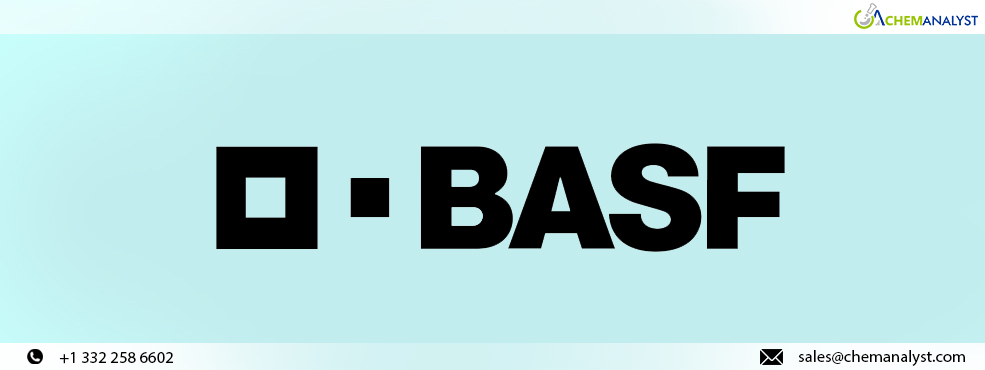Welcome To ChemAnalyst

BASF SE, headquartered in Ludwigshafen, Germany, recently conducted a groundbreaking ceremony for its upcoming fermentation plant dedicated to crop protection products. Scheduled to commence operations in the latter half of 2025, this facility will specialize in the production of biological fungicides and seed treatment solutions. Additionally, BASF intends to manufacture the primary component of Inscalis, an innovative insecticide derived from a fungal strain.
At the core of the production process lies fermentation, where microorganisms are employed to convert renewable raw materials, such as glucose, into the desired end products. Anticipated to create employment opportunities for 30 individuals across various departments including production, logistics, engineering, and maintenance, the plant represents a significant investment in bolstering BASF's capabilities in the realm of sustainable agriculture.
During the ceremony, Dr. Uwe Liebelt, President of European Site and Verbund Management, Heather Remley, President of Engineering & Technical Expertise in Ludwigshafen, and Christian Aucoin, Senior Vice President of Global Operations at BASF Agricultural Solutions, participated in a symbolic act by burying a time capsule. This time capsule, commemorating the groundbreaking day of the plant, contained significant mementos such as a photo of the project team, a daily newspaper, the canteen menu of the day, and a panda bear emblematic of the connection with Chengdu in China. Notably, Chengdu served as a pivotal location for the detailed engineering work associated with the plant's development.
Furthermore, the adoption of fermentation technology underscores BASF's dedication to innovation, positioning the company to introduce a broader range of biotechnology-derived products to the market in the future. This strategic initiative not only enhances BASF's manufacturing capabilities but also contributes to the ongoing transition towards more energy-efficient processes based on renewable resources.
The Ludwigshafen site, renowned for its robust infrastructure and seamless integration into an existing high-performance production framework, offers an ideal environment for such endeavors. Moreover, its proximity to research facilities such as White Biotechnology facilitates collaboration and innovation, further augmenting BASF's capabilities in the realm of sustainable agriculture.
Ensuring ample, nutritious, and cost-effective food for a swiftly expanding populace while mitigating environmental repercussions is paramount in agriculture. Through collaboration with partners and agricultural specialists, BASF endeavors to imbue sustainability principles into every business endeavor, aiding farmers in fostering sustainable agricultural practices. BASF prioritizes robust investment in research and development, bridging visionary ideas with tangible implementation in agricultural settings. Its diverse portfolio encompasses seeds with meticulously chosen plant attributes, both chemical and biological crop protection solutions, innovations in soil management, plant health, pest management, and advancements in digital farming technologies.
BASF pioneers chemistry for a sustainable tomorrow, harmonizing economic prosperity with environmental stewardship and social accountability. With over 111,000 dedicated employees across the BASF Group, we collaborate to drive our customers' achievements across virtually all industries and global territories. In 2022, BASF achieved sales totaling €87.3 billion.
We use cookies to deliver the best possible experience on our website. To learn more, visit our Privacy Policy. By continuing to use this site or by closing this box, you consent to our use of cookies. More info.
